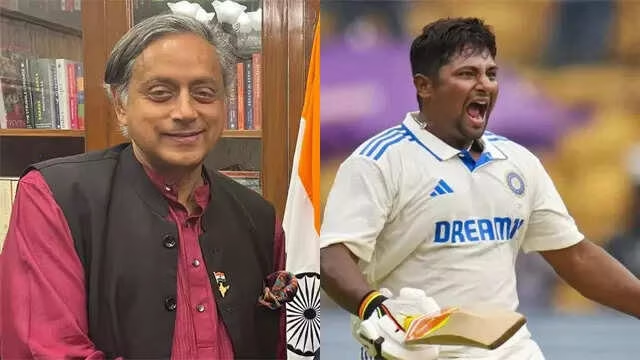Ranji Trophy Crisis: Is Domestic Cricket Still Relevant?
The recent omission of Sarfaraz Khan from the India A squad has ignited a firestorm in Indian cricket, with veteran voices and political figures demanding answers. At the heart of the controversy lies a fundamental question: Why should anyone bother to play Ranji?
Congress MP and avid cricket fan Shashi Tharoor didn’t mince words, calling the snub an “outrage” and questioning the very foundation of the national selection process . His frustration echoes a growing sentiment among players and fans alike—that the storied Ranji Trophy is being sidelined in favor of flashier, shorter formats.
The Sarfaraz Khan Snub: A Symptom of a Larger Problem
Sarfaraz Khan’s case is a textbook example of the current selection dilemma. Despite amassing a mountain of runs in the domestic circuit, his path to the national team remains blocked. Tharoor urged selectors to value these consistent domestic performances over the fleeting exploits of the IPL, where a single good season can catapult a player into the spotlight .
This isn’t an isolated incident. It’s a pattern that’s leaving seasoned campaigners bewildered and disillusioned.
Veteran Voices Speak Out Against “Age-Based Selection”
Former India stalwarts Ajinkya Rahane and Karun Nair have been vocal critics of the current selection committee’s approach. Both players, known for their grit and determination in the longest format, feel that their strong domestic showings have been unfairly overlooked in what they describe as an “age-based selection” policy .
Rahane firmly believes that domestic cricket should be the primary benchmark for national selection. “I strongly believe that those who want to play Test cricket, should play domestic cricket first,” he stated, highlighting the importance of the traditional pathway . This sentiment is shared by many who see the Ranji Trophy as the true test of a cricketer’s character and skill.
Ranji Trophy vs. IPL: The Great Selection Debate
The core of this crisis is the shifting balance of power in Indian cricket. The IPL, with its massive viewership and financial clout, has become the de facto scouting ground for selectors. This trend is “worrying,” as it potentially undermines the importance of the Ranji Trophy—the very platform designed to nurture first-class talent .
While the IPL showcases a player’s ability to perform under pressure in a high-octane environment, the Ranji Trophy tests their endurance, technique, and mental fortitude over multiple days. The common perception now is that “it’s the IPL performance that is the marker for entry into Indian teams across formats” . This shift has left many questioning the future of red-ball cricket in the country.
Why the Ranji Trophy Still Matters
Despite the challenges, the Ranji Trophy remains the backbone of Indian domestic cricket. It is the breeding ground where future stars are forged, a place where players learn to master the nuances of the game against varied opposition and in diverse conditions . Established in 1934, it is India’s premier domestic first-class tournament and a crucial part of the sport’s rich history .
Without a strong and respected domestic structure, the pipeline for Test cricket—a format that is the ultimate test of a player’s ability—will inevitably dry up.
The Way Forward
The outcry from Tharoor, Rahane, Nair, and countless others is a wake-up call for the BCCI and the national selectors. A balanced approach is needed—one that respects the legacy and rigor of the Ranji Trophy while acknowledging the modern realities of the IPL. The selection policy must be transparent, merit-based, and give due credit to sustained excellence in the domestic arena.
Otherwise, the question “Why should anyone bother to play Ranji?” may soon be met with a deafening silence.
